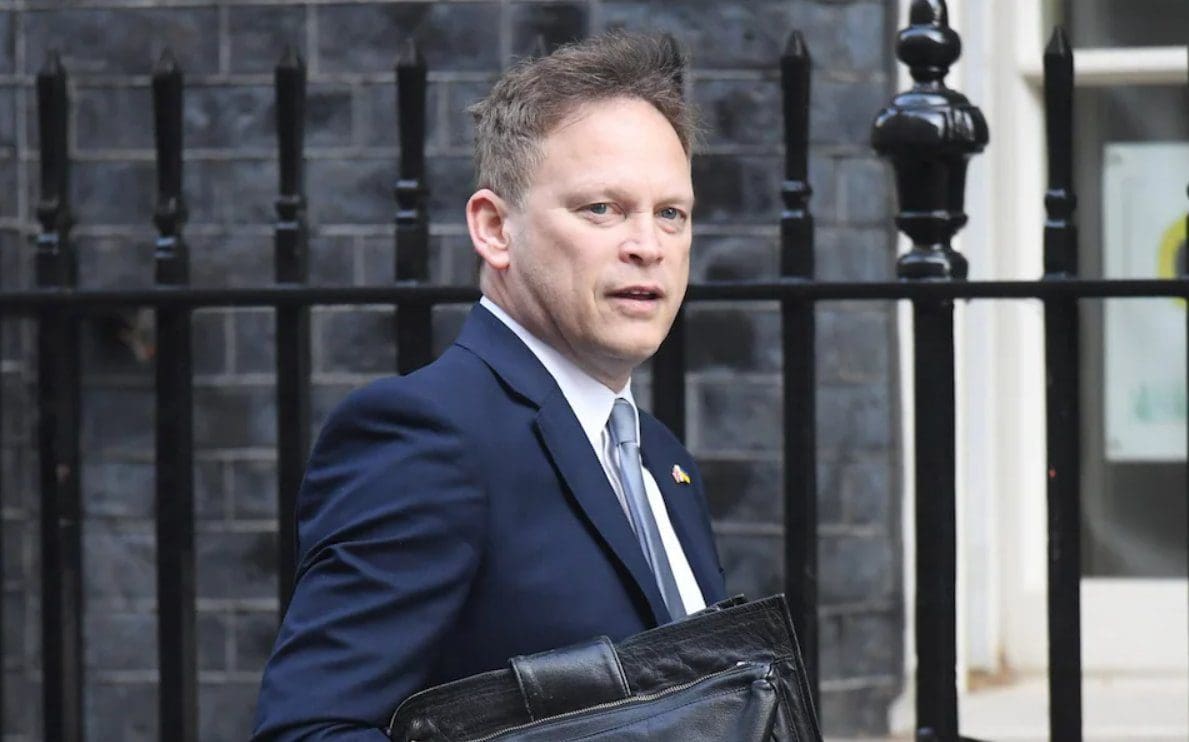

Is ‘Degrowth’ Now Government Policy?
News broke this week that Grant Shapps (infamous for unleashing Low Traffic Neighbourhoods on a locked down population in 2020) is to unveil a Government campaign urging us to turn down our thermostats by two degrees this winter. We will also be told to reduce the flow-rate in our boilers in an initiative originally vetoed by Liz Truss but now revived. This complements TV advertising broadcast nightly by water companies such as Affinity telling us to reduce our time in the shower by two minutes. There are many reasons to object to this, not least as an unwarranted example of state nannying. But coming on the heels of the Autumn Statement, it is part of a much more worrying overall trend.
Spectator editor Fraser Nelson confessed on the Coffee House podcast at the weekend that, following last week’s Statement, he’d decided against one of his cover options for the latest issue: it showed, he said, “Rishi Sunak and Jeremy Hunt standing over a grave putting some earth into it. And the headline I was going to do was ‘The Burial of Growth [or] The End of Growth’”.
It’s a pity he didn’t run with it. What we are witnessing is indeed the end of growth and the Spectator-cover-that-never-was would have delivered a much-needed point: it’s as if the suppression of growth is the plan. Watching Hunt deliver the Autumn Statement, it was as if the Treasury’s best brains had got around a meeting room table with exactly that in mind: the highest taxes since the Second World War, a stepping up on the assault on small business (from which most growth derives) and windfall taxes on energy firms, removing any incentive to produce much needed domestic gas. All this was presented as an unavoidable and necessary antidote to what we’re told was an unwise growth experiment on the part of the ‘libertarian jihadists’, Truss and Kwarteng. We are also told by, among others, Lord Jim O’ Neill (ex-Goldman Sachs) that the “grown-ups are back in the room” and that, infantilised by those that govern us, we can take some comfort in the fact that the markets are reassured and that we have trusted and competent leaders at the helm.
Liz Truss spoke only last month of an “anti-growth coalition” for a reason. The prevailing orthodoxy since the coup is not one of growth regrettably postponed because of the disaster of Trussonomics. It is much more terrifying than that – what we are being subjected to is degrowth. Whether you blame the Blob, the Treasury, the World Economic Forum or the ‘global elite’, the facts point to a disastrous alignment of economic policy with that of the most extreme eco-zealots.
If you’ve not come across the term, ‘degrowth’ is exactly what it sounds like – reducing output in a bid to reduce emissions and hasten our pursuit of Net Zero. If it seems a dumb idea, it’s getting a lot of traction and not just among Marxists like Japanese philosopher Kohei Saito whose degrowth textbook Capital in the Anthropocene has sold half a million copies – and hasn’t even been translated into English yet. Among more establishment figures, Obama’s former Secretary of Energy, Steven Chu, says, “You have to design an economy based on no growth or even shrinking growth.”
As recently pointed out by Julia Horowitz on the CNN website, the European Parliament plans a conference next spring titled “Beyond Growth” – Ursula von Leyen plans to attend. The European Research Council recently allocated some $10 million to three top degrowth scholars to explore practical ‘post-growth’ policies. One of them, Giorgos Kallis of the Universitat Autònoma de Barcelona, says, “An innocent 2% or 3% per year, it’s an enormous amount of growth — cumulative growth, compound growth — over time. I don’t see it being compatible with the physical reality of the planet.” Another of the trio, Jason Hickel says: “More growth means more energy use, and more energy use makes it more difficult to decarbonise the energy system in the short time we have left.”
Many of us saw this coming during the pandemic when ‘behavioural scientists’ on the Government’s SPI-B group included Communist Party member Susan Michie, memorable for her exhortation on Channel 5 last year to observe mask-wearing and social distancing “forever”. She also made the point that some of the virtuous behaviours of lockdowns – such as not commuting to work – should be sustained for the sake of the environment.
Viewing recent events through the lens of the ‘degrowth’ movement should make us all very concerned. Those of a genuinely conservative mindset celebrated Kwasi Kwarteng’s attempt to revive the lost idea of growth. It was necessarily oppositional to the Treasury Orthodoxy and while the timing was arguably unfortunate, the ‘disaster’ was at least in part confected as Truss’s foes moved from one symbol of recklessness to another – at one point it was the dollar/sterling rate; at another it was the politics of removing the 45p tax band; then it became about gilts and the markets’ rampant hostility.
Among the main political parties, there is now a consensus that we should abandon the fossil fuels that have enabled humans to flourish over the last two centuries and return to the woefully inefficient and intermittent technologies of wind and water abandoned by our ancestors. Just as we are being nudged and hectored into following a spurious Net Zero agenda, we are being gaslit into enduring a prolonged recession that is presented as inescapable and caused by external factors outside our control – Covid, Ukraine, climate change. We are increasingly being urged to accept a path of decline and diminished lifestyles. Demand is to be managed down requiring us to do less, be it driving, heating our homes or using the shower. The truth is that we are steadily being pushed down into an impoverished feudal existence by an elite that has been captured by a Marxist consensus of central planning and control.
Ian Price is a Business Psychologist. Find him on Twitter.







